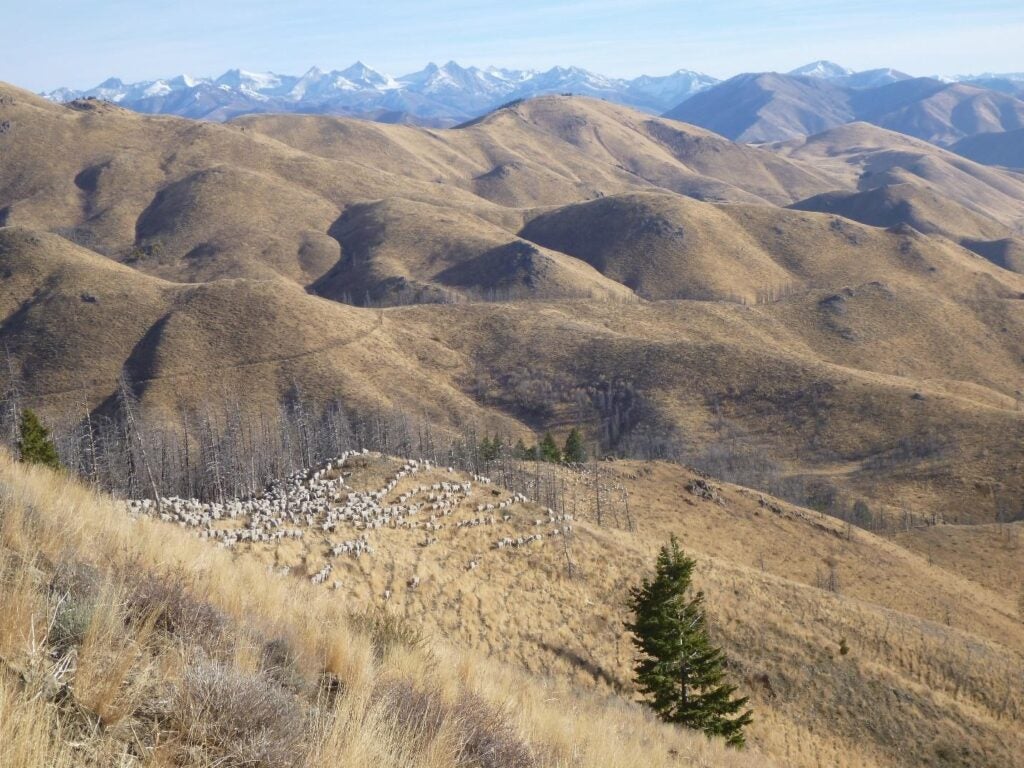
Abstract
Targeted grazing is the practice of using livestock grazing treatments to achieve vegetation management goals. The tool is gaining popularity to manage invasive plants and fuels for wildfire in the American West. Despite interest from land managers and ranchers who graze livestock on National Forests, use of the tool on Forest Service lands is limited. This research seeks to understand the social-ecological potential of targeted grazing as part of an adaptive land management toolbox on America’s National Forests by integrating social and ecological sciences. This research seeks to understand how social-psychological processes of individual USFS staff, livestock producer preferences, and other social-ecological factors together influence targeted grazing practice.
The research includes a survey of USFS staff in the Intermountain, Pacific Southwest, and Pacific Northwest regions to understand the attitudes, norms and perceptions of efficacy of USFS staff that influence implementation of targeted grazing. Additionally, a survey of livestock producers that graze on public lands is simultaneously investigating producer preferences and constraints to participation in targeted grazing programs. Finally, USFS and producer survey results will be integrated with biophysical and institutional data sources to understand how to support use of targeted grazing where environmentally appropriate.
If you have any questions about the study, please contact Dr. Briana Swette at brianaswette@boisestate.edu.
Project Highlights
- Improving understanding of the potential of targeted grazing to serve as an adaptive land management tool on USFS lands.
- Investigating how individual attitudes, perceived efficacy, and norms of Forest Service staff influence institutional adaptive management through targeted grazing implementation.
- Understanding the variables that influence livestock producer ability and willingness to participate in targeted grazing on National Forests.
- Mapping social-ecological archetypes of land management that support context-specific targeted grazing implementation
Team
- Briana Swette, Boise State University
- Kelly Hopping, Boise State University
- Susan Charnley, Pacific Northwest Research Station, Forest Service, USDA
- April Hulet, Brigham Young University
- Lynn Huntsinger, University of California, Berkeley
Partners
- Forest Service, USDA, Intermountain, Pacific Southwest, and Pacific Northwest Regions
Resources
- Targeted grazing by sheep to control invasive species and reduce wildfire risk
- Psychosocial factors of U.S. Forest Service staff that influence targeted grazing practice on national forests
- Research Brief: Targeted Grazing on Forest Service Lands
Funding
This work is supported by Agricultural and Food Research Initiative grant no. 2024-67012-42243 from the USDA National Institute of Food and Agriculture. This project was also funded in part by the USDA National Institute of Food and Agriculture through the Western Integrated Pest Management Center, grant number 2022-70006-38003.